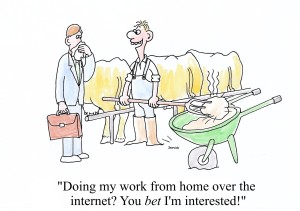Now, let’s say you run into a best-case-scenario when it comes to the dollars-and-cents comparison of your switch to IP telephony. Your current provider continues to sell their services for twice as much as the IP telephony provider you decided to switch to. This is great, but saving a little money for your organization isn’t everything it’s cracked up to be, especially if you aren’t the final decision maker in your department.
Addition, Not Subtraction
Think about it this way- unless your department is already grossly over budget, or unless your department has been explicitly instructed to cut costs, saving money isn’t that big of a deal in-and-of itself. In the absence of immediate budgetary pressure decision makers aren’t looking to spend less. They’re looking to spend more and get more. Service improvements help them meet their ambitions, impress their bosses, and to otherwise get more done than they’re currently accomplishing.






